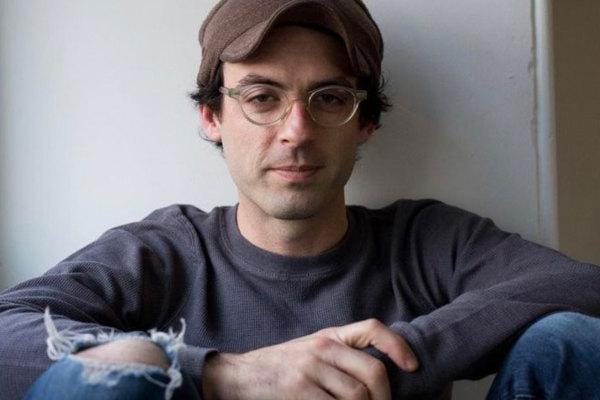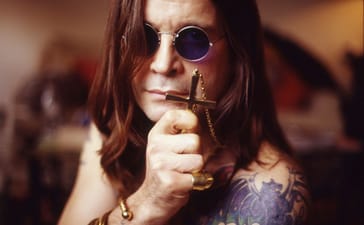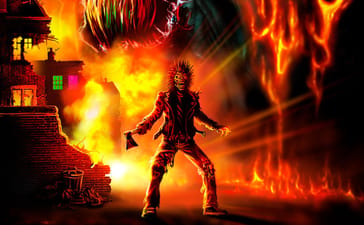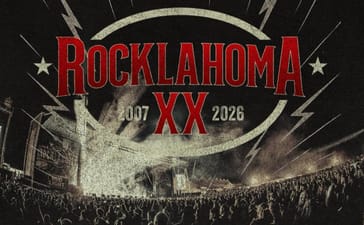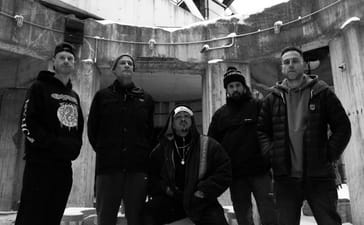Clap Your Hands Say Yeah talk happy accidents, calculated messes and the twentieth anniversary of their eponymous debut album.
I’ll never forget falling in love with my ex-partner while listening to Clap Your Hands Say Yeah’s eponymous debut album.
It was October 2023, our first date. We’d just come home from the pub. A bit drunk and very flushed, I sat on the polished wooden floor of an eastern Sydney apartment, rifling through their extensive vinyl collection. I needed to choose the right record — I knew this was a moment I would remember for the rest of my life.
And that’s when I encountered it.
It’s distinctive mustard yellow cover featuring intricately drawn babies crawling on top of each other. It was bizarre and slightly unnerving, but it was the one. It was the apt frame for that moment.
Negroni in hand, I listened in closely. The high-pitched, whiny vocals; the jangly guitars — it was unlike anything I’d ever heard. It still is quite frankly.
Under the spell of that record, I also found myself feeling comfortable. Probably the most comfortable I had ever been with a stranger in my life. Without warning, cause or valid explanation, I was in love.
While that relationship unfortunately did not work out, I often come back to Clap Your Hands Say Yeah.
Where the record once resembled loss, it is now enshrined as my doorway. Where a few seconds of music can transport me back. To that brown leather couch. That album. And me and my ex-partner falling in love all over again.
After telling Clap Your Hands Say Yeah’s Alec Ounsworth that story, I can see he’s touched. While I acknowledge that my experience with the record is uniquely mine, there’s a glint of ecstasy in his eyes — that something he made still holds such value, even twenty years on.
“I’ve heard lots of stories from a lot of different people [about their relationship with the record]. This record came to me at an important time; it was to do with a relationship.”
For Ounsworth, however, the impetus for making the record was never about connecting with others. In fact, the fact that it did resonate came as a great surprise.
“For me, the most important thing about this record was that I communicated something unfettered by the industry. I didn’t give a damn if people liked me. I wasn’t trying to play any games. I was an angry music snob making something for myself. The fact that it resonated with others still surprises me.”
Ounsworth is currently dialling in from his home in Philadelphia, where it’s summertime. You can almost hear the sun sizzling in the background as he speaks. A few beads of sweat drip down his forehead.
Clap Your Hands Say Yeah was released on 28 June 2005. Now, over twenty years on, it’s actually quite remarkable that we’re still talking about it — especially when you consider the record was made by a group of frustrated young men who quite literally had no idea what they were doing. Not backed by any label or corporate machine, the band’s marketing plan was simply to mail out copies to people.
“It’s strange,” Ounsworth says when discussing the 20th anniversary, which will see the band tour Australia in November.
“It feels like yesterday. But it also feels like a long time ago, in the sense that I know what’s happened between then and now. I was speaking to something more general in the record — the struggles people face never really change. I’m not ashamed to play these songs now; their relevance feels even more profound.”
Beyond the themes of the record, Ounsworth finds himself increasingly appreciative of the songs and the legacy they’ve created in times since.
“I was more aggressively angry back then,” he says, reflecting on the record’s reception. “I wasn’t interested in journalists who hadn’t listened to my record. I don’t know how to hide behind niceties. I still really appreciate these songs.”
“We were playing shows in New York for two years before the album was released,” Ounsworth says, reflecting on the record’s marketing. “We had already built an audience — but only in New York. I think we had a Myspace page and a website.”
Clap Your Hands Say Yeah still doesn’t quite understand how they became successful. “It kind of just happened,” Ounsworth admits. “We virtually did nothing to promote the record. No music videos. I turned down a lot of well-paid shows because I didn’t see the point.”
When asked if he regrets missing those opportunities, he pauses, then shrugs. “Not really. It just didn’t feel right. I never wanted it to be enormous. I never wanted to take over Madison Square Garden. That ambition seeps into your work, and then you’re not allowed to write that one beautiful, small song.”
If you read any think piece about blog rock over the past twenty years, Clap Your Hands Say Yeah will almost certainly be mentioned. Something Ounsworth and the band never quite understood.
“People’s interest in us was purely organic. We had no machine behind us. That’s what annoys me most nowadays — social media and all its resources. There’s very little that’s organic.”
The band’s unusual name was inspired by a large graffiti sign Ounsworth and a friend passed in Brooklyn on their way to a gig. Since then, many fans have tried to project their own meanings onto it, unaware it came from a ‘happy accident’.
“At first, I made up an explanation because I was tired of answering questions,” he admits. But over time, his relationship with the name changed. It became something to write towards — a kind of stupid positivity.
“The more I thought about it, the more I liked the name. I don’t write songs directly about positivity — especially that jubilant kind. What I write about is hopefulness. The idea that this could be something, in the face of constant adversity, you can shine a light on. That’s what the name means.”
Clap Your Hands Say Yeah were never driven by financial success or playing huge venues. They just wanted to make good music they wanted to hear. And, as luck would have it, others did too.
“Imperfection is where it’s at,” Ounsworth says of his approach to music. “People have lost the ability to embrace imperfection. For me, the bigger the show, the less interesting it is — unless there are amazing lights. That’s kind of it.”
He says this also applies to artists who start small then get big.
“I saw Justin Vernon (Bon Iver) play a small support gig early in his career, then a few years later at a huge show. He smoothed the edges a bit. But he went in the direction he needed to. I don’t begrudge that — it’s just not interesting to me.”
Instead, Ounsworth prefers what he calls the “calculated mess”.
“Those are my favourite albums. I’m in a weird Peter Gabriel phase right now — like his early stuff from ’77. You can tell there’s fun behind it, where everything falls into place in a calculated mess.”
Asked which current artists embody this, he quickly namechecks Cameron Winter. “His album Heavy Metal is the perfect calculated mess.”
“Who else?” I ask.
“Mk.gee, King Krule, Big Thief — they all make spiky stuff.”
Clap Your Hands Say Yeah will be bringing this calculated mess on the road to Australia in early November, playing their debut album front to back.
“I start with a warm-up song, then we play the album exactly as it is. We don’t change the order — I was very careful with it at the time.”
When asked about new material beyond the tour, Ounsworth nods but stays tight-lipped.
“Yeah. I’m back to writing. There was a long lull where I wasn’t interested. Everything I was writing was negative — it became a dark place. But in the last few weeks, I’ve turned a corner. Now I’m in there all the time. I just wish it was a bit more consistent,” he laughs.
As our conversation draws to a close, I savour the last moments. Much like my relationship with my ex, Ounsworth’s and my conversation will soon be a memory tucked away in the back of my mind. A silence stirs, I’ve no more questions.
“I have a question for you now, if that’s allowed?”
“Sure,” I reply, caught off guard by the sudden flip of the script.
“Do you still talk to your ex? The one who showed you, my music?” he asks, a light spark in his eyes.
“Sometimes,” I reply, “It’s complicated.”
“I understand. Well, thank you for telling me that story.”
“No, thank you.”


